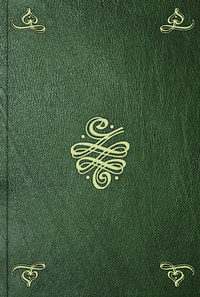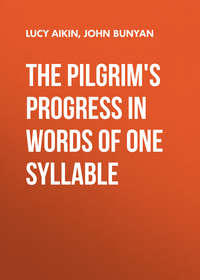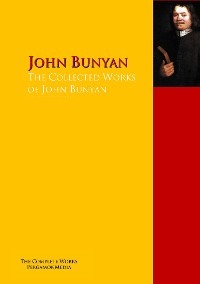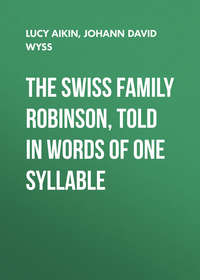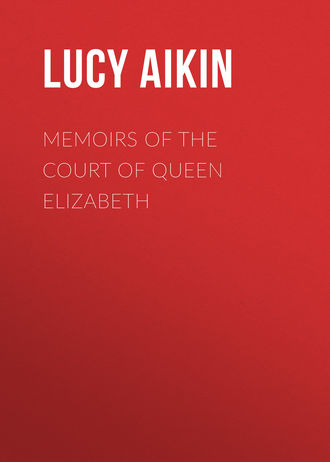 полная версия
полная версияMemoirs of the Court of Queen Elizabeth
The death of Henry II. of France, which occurred during the summer of this year, gave occasion to a splendid ceremony in St. Paul's cathedral, which was rendered remarkable by some circumstances connected with the late change of religion. This was the performance of his obsequies, then a customary tribute among the princes of Europe to the memory of each other; which Elizabeth therefore would by no means omit, though the custom was so intimately connected with doctrines and practices characteristic of the Romish church, that it was difficult to divest it, in the judgement of a protestant people, of the character of a superstitious observance. A hearse magnificently adorned with the banners and scutcheons of the deceased was placed in the church; a great train of lords and gentlemen attended as mourners; and all the ceremonies of a real funeral were duly performed, not excepting the offering at the altar of money, originally designed, without doubt, for the purchase of masses for the dead. The herald, however, was ordered to substitute other words in place of the ancient request to all present to pray for the soul of the departed; and several reformations were made in the service, and in the communion with which this stately piece of pageantry concluded.
In the month of December was interred with much ceremony in Westminster Abbey Frances duchess-dowager of Suffolk, grandaughter to Henry VII. After the tragical catastrophe of her misguided husband and of lady Jane Grey her eldest daughter, the duchess was suffered to remain in unmolested privacy, and she had since rendered herself utterly insignificant, not to say contemptible, by an obscure marriage with one Stoke, a young man who was her master of the horse. There is a tradition, that on Elizabeth's exclaiming with surprise and indignation when the news of this connexion reached her ears, "What, hath she married her horse keeper?" Cecil replied, "Yes, madam, and she says your majesty would like to do so too;" lord Robert Dudley then filling the office of master of the horse to the queen.
The impolicy or inutility of sumptuary laws was not in this age acknowledged. A proclamation therefore was issued in October 1559 to check that prevalent excess in apparel which was felt as a serious evil at this period, when the manufactures of England were in so rude a state that almost every article for the use of the higher classes was imported from Flanders, France, or Italy, in exchange for the raw commodities of the country, or perhaps for money.
The invectives of divines, in various ages of the Christian church, have placed upon lasting record some transient follies which would otherwise have sunk into oblivion, and the sermons of bishop Pilkington, a warm polemic of this time, may be quoted as a kind of commentary on the proclamation. He reproves "fine-fingered rufflers, with their sables about their necks, corked slippers, trimmed buskins, and warm mittons."—"These tender Parnels," he says, "must have one gown for the day, another for the night; one long, another short; one for winter, another for summer. One furred through, another but faced: one for the work-day, another for the holiday. One of this color, another of that. One of cloth, another of silk, or damask. Change of apparel; one afore dinner, another at after: one of Spanish fashion, another of Turkey. And to be brief, never content with enough, but always devising new fashions and strange. Yea a ruffian will have more in his ruff and his hose than he should spend in a year. He which ought to go in a russet coat, spends as much on apparel for him and his wife, as his father would have kept a good house with."
The costly furs here mentioned had probably become fashionable since a direct intercourse had been opened in the last reign with Russia, from which country ambassadors had arrived, whose barbaric splendor astonished the eyes of the good people of London. The affectation of wearing by turns the costume of all the nations of Europe, with which the queen herself was not a little infected, may be traced partly to the practice of importing articles of dress from those nations, and that of employing foreign tailors in preference to native ones, and partly to the taste for travelling, which since the revival of letters had become laudably prevalent among the young nobility and gentry of England. That more in proportion was expended on the elegant luxuries of dress, and less on the coarser indulgences of the table, ought rather to have been considered as a desirable approach to refinement of manners than a legitimate subject of censure.
An act of parliament was passed in this year subjecting the use of enchantment and witchcraft to the pains of felony. The malcontent catholics, it seems, were accused of employing practices of this nature; their predictions of her majesty's death had given uneasiness to government by encouraging plots against her government; and it was feared, "by many good and sober men," that these dealers in the black art might even bewitch the queen herself. That it was the learned bishop Jewel who had led the way in inspiring these superstitious terrors, to which religious animosities lent additional violence, may fairly be inferred from the following passage of a discourse which was delivered by him in the queen's presence the year before.... "Witches and sorcerers within these last few years are marvellously increased within your grace's realm. These eyes have seen most evident and manifest marks of their wickedness. Your grace's subjects pine away even unto the death; their color fadeth, their flesh rotteth, their speech is benumbed, their senses are bereft. Wherefore your poor subjects' most humble petition to your highness is, that the laws touching such malefactors may be put in due execution. For the shoal of them is great, their doing horrible, their malice intolerable, the examples most miserable. And I pray God they never practise further than upon the subject."
CHAPTER XI
1560Successful campaign in Scotland.—Embassy of viscount Montacute to Spain—of sir T. Chaloner to the Emperor.—Account of Chaloner.—Letter of his respecting Dudley and the queen.—Dudley loses his wife.—Mysterious manner of her death.—Suspicion cast upon her husband.—Dudley and several other courtiers aspire to the hand of their sovereign.—Tournaments in her honor.—Impresses.—Sir W. Pickering.—Rivalry of Arundel and Dudley.
The accession of Francis II., husband to the queen of Scots, to the French throne had renewed the dangers of Elizabeth from the hostility of France and of Scotland; and in the politic resolution of removing from her own territory to that of her enemies the seat of a war which she saw to be inevitable, she levied a strong army and sent it under the command of the duke of Norfolk and lord Grey de Wilton to the frontiers of Scotland. She also entered into a close connexion with the protestant party in that country, who were already in arms against the queen-regent and her French auxiliaries. Success attended this well-planned expedition, and at the end of a single campaign Elizabeth was able to terminate the war by the treaty of Edinburgh; a convention the terms of which were such as effectually to secure her from all fear of future molestation in this quarter.
During the period of these hostilities, however, her situation was an anxious one. It was greatly to be feared that the emperor and the king of Spain, forgetting in their zeal for the catholic church the habitual enmity of the house of Austria against that of Bourbon, would make common cause with France against a sovereign who now stood forth the avowed protectress of protestantism; and such a combination of the great powers of Europe, seconded by a large catholic party at home, England was by no means in a condition to withstand. By skilful negotiation it seemed possible to avert these evils; and Elizabeth, by her selection of diplomatic agents on this important occasion, gave striking evidence of her superior judgement.
To plead her cause with the king of Spain, she dispatched Anthony Browne viscount Montacute; a nobleman who, to the general recommendation of wisdom and experience in public affairs, added the peculiar one, for this service, of a zealous attachment to the Romish faith, proved by his determined opposition in the house of lords to the bill of uniformity lately carried by a great majority. The explanations and arguments of the viscount prevailed so far with Philip, that he ordered his ambassador at Rome to oppose the endeavours of the French court to prevail on the pope to fulminate his ecclesiastical censures against Elizabeth. It was found impracticable, however, to bring him to terms of cordial amity with a heretic sovereign whose principles he both detested and dreaded; and by returning, some time after, the decorations of the order of the garter, he distinctly intimated to the queen, that motives of policy alone restrained him from becoming her open enemy.
For ambassador to the emperor she made choice, at the recommendation probably of Cecil, of his relation and beloved friend sir Thomas Chaloner the elder, a statesman, a soldier, and a man of letters; and in these three characters, so rarely united, one of the distinguished ornaments of his age. He was born in 1515 of a good family in Wales, and, being early sent to Cambridge, became known as a very elegant Latin poet, and generally as a young man of the most promising talents. After a short residence at court, his merit caused him to be selected to attend into Germany sir Henry Knevet the English ambassador, with a view to his qualifying himself for future diplomatic employment. At the court of Charles V. he was received with extraordinary favor; and after waiting upon that monarch, in several of his journeys, he was at length induced, by admiration of his character, to accompany him as a volunteer in his rash expedition against Algiers. He was shipwrecked in the storm which almost destroyed the fleet, and only escaped drowning by catching in his mouth, as he was struggling with the waves, a cable, by which he was drawn up into a ship with the loss of several of his teeth.
Returning home, he was made clerk of the council, which office he held during the remainder of Henry's reign. Early in the next he was distinguished by the protector, and, having signalized his valor in the battle of Pinkey, was knighted by him on the field. The fall of his patron put a stop to his advancement; but he solaced himself under this reverse by the cultivation of literature, and of friendship with such men as Cook, Smith, Cheke, and Cecil. The strictness of his protestant principles rendered his situation under the reign of Mary both disagreeable and hazardous, and he generously added to its perils by his strenuous exertions in behalf of the unfortunate Cheke; but the services which he had rendered in Edward's time to many of the oppressed catholics now interested their gratitude in his protection, and were thus the means of preserving him unhurt for better times.
Soon after his return from his embassy to the emperor Ferdinand, we find him engaged in a very perplexing and disagreeable mission to the unfriendly court of Philip II., where the mortifications which he encountered, joined to the insalubrity of the climate, so impaired his health that he found himself obliged to solicit his recall, which he did in an Ovidian elegy addressed to the queen. The petition of the poet was granted, but too late; he sunk under a lingering malady in October 1565, a few months after his return.
The poignant grief of Cecil for his loss found its best alleviation in the exemplary performance of all the duties of surviving friendship. He officiated as chief mourner at his funeral, and superintended with solicitude truly paternal the education of his son, Thomas Chaloner the younger, afterwards a distinguished character. By his encouragement, the Latin poems of his friend, chiefly consisting of epitaphs and panegyrics on his most celebrated contemporaries, were collected and published; and it was under his patronage, and prefaced by a Latin poem from his pen in praise of the author, that a new and complete edition appeared of the principal work of this accomplished person;—a tractate "on the right ordering of the English republic," also in Latin.
Sir Thomas Chaloner was the first ambassador named by Elizabeth; a distinction of which he proved himself highly deserving. Wisdom and integrity he was already known to possess; and in his negotiations with the imperial court, where it was his business to draw the bonds of amity as close as should be found practicable without pledging his mistress to the acceptance of the hand of the archduke Charles, he also manifested a degree of skill and dexterity which drew forth the warmest commendations from Elizabeth herself. His conduct, she said, had far exceeded all her expectations of his prudence and abilities.
This testimony may be allowed to give additional weight to his opinion on a point of great delicacy in the personal conduct of her majesty, as well as on some more general questions of policy, expressed in a postscript to one of his official letters to secretary Cecil. The letter, it should be observed, was written near the close of the year 1559, when the favor of the queen to Dudley had first become a subject of general remark, and before all hopes were lost of her finally closing with the proposals of the archduke.
"I assure you, sir, these folks are broad-mouthed where I spake of one too much in favor, as they esteem. I think ye guess whom they named; if ye do not, I will upon my next letters write further. To tell you what I conceive; as I count the slander most false, so a young princess cannot be too wary what countenance or familiar demonstration she maketh, more to one than another. I judge no man's service in the realm worth the entertainment with such a tale of obloquy, or occasion of speech to such men as of evil will are ready to find faults. This delay of ripe time for marriage, besides the loss of the realm (for without posterity of her highness what hope is left unto us?) ministereth matter to these leud tongues to descant upon, and breedeth contempt. I would I had but one hour's talk with you. Think if I trusted not your good nature, I would not write thus much; which nevertheless I humbly pray you to reserve as written to yourself.
"Consider how ye deal now in the emperor's matter: much dependeth on it. Here they hang in expectation as men desirous it should go forward, but yet they have small hope: In mine opinion (be it said to you only) the affinity is great and honorable: The amity necessary to stop and cool many enterprises. Ye need not fear his greatness should overrule you; he is not a Philip, but better for us than a Philip. Let the time work for Scotland as God will, for sure the French, I believe, shall never long enjoy them: and when we be stronger and more ready, we may proceed with that, that is yet unripe. The time itself will work, when our great neighbours fall out next. In the mean time settle we things begun; and let us arm and fortify our frontiers." &c.46
Sufficient evidence remains that the sentiments of Cecil respecting the queen's behaviour to Dudley coincided with those of his friend, and that fears for her reputation gave additional urgency about this period to those pleadings in favor of matrimony which her council were doomed to press upon her attention so often and so much in vain. But a circumstance occurred soon after which totally changed the nature of their apprehensions respecting her future conduct, and rendered her anticipated choice of a husband no longer an object of hope and joy, but of general dissatisfaction and alarm.
Just when the whispered scandal of the court had apprized him how obvious to all beholders the partiality of his sovereign had become,—just when her rejection of the proposals of so many foreign princes had confirmed the suspicion that her heart had given itself at home,—just, in short, when every thing conspired to sanction hopes which under any other circumstances would have appeared no less visionary than presumptuous,—at the very juncture most favorable to his ambition, but most perilous to his reputation, lord Robert Dudley lost his wife, and by a fate equally sudden and mysterious.
This unfortunate lady had been sent by her husband, under the conduct of sir Richard Verney, one of his retainers,—but for what reason or under what pretext does not appear,—to Cumnor House in Berkshire, a solitary mansion inhabited by Anthony Foster, also a dependent of Dudley's and bound to him by particular obligations. Here she soon after met with her death;
and Verney and Foster, who appear to have been alone in the house with her, gave out that it happened by an accidental fall down stairs. But this account, from various causes, gained so little credit in the neighbourhood, that reports of the most sinister import were quickly propagated. These discourses soon reached the ears of Thomas Lever, a prebendary of Coventry and a very conscientious person, who immediately addressed to the secretaries of state an earnest letter, still extant, beseeching them to cause strict inquiry to be made into the case, as it was commonly believed that the lady had been murdered: but he mentioned no particular grounds of this belief, and it cannot now be ascertained whether any steps were taken in consequence of his application. If there were, they certainly produced no satisfactory explanation of the circumstance; for not only the popular voice, which was ever hostile to Dudley, continued to accuse him as the contriver of her fate, but Cecil himself, in a memorandum drawn up some years after of reasons against the queen's making him her husband, mentions among other objections, "that he is infamed by the death of his wife."
Whether the thorough investigation of this matter was evaded by the artifices of Dudley, or whether his enemies, finding it impracticable to bring the crime home to him, found it more advisable voluntarily to drop the inquiry, certain it is, that the queen was never brought in any manner to take cognisance of the affair, and that the credit of Dudley continued as high with her as ever. But in the opinion of the country the favorite passed ever after for a dark designer, capable of perpetrating any secret villainy in furtherance of his designs, and skilful enough to conceal his atrocity under a cloak of artifice and hypocrisy impervious to the partial eyes of his royal mistress, though penetrated by all the world besides. This idea of his character caused him afterwards to be accused of practising against the lives of several other persons who were observed to perish opportunely for his purposes. Each of these charges will be particularly examined in its proper place; but it ought here to be observed, that not one of them appears to be supported by so many circumstances of probability as the first; and even in support of this, no direct evidence has ever been adduced.
Under all the circumstances of his situation, Dudley could not venture as yet openly to declare himself the suitor of his sovereign; but she doubtless knew how to interpret both the vehemence of his opposition to the pretensions of the archduke, and the equal vehemence with which those pretensions were supported by an opposite party in her council, of which the earl of Sussex was the head.
Few could yet be persuaded that the avowed determination of the queen in favor of the single state would prove unalterable: most therefore who observed her averseness to a foreign connexion believed that she was secretly meditating to honor with her hand some subject of her own, who could never have a separate interest from that of his country, and whose gratitude for the splendid distinction would secure to her the possession of his lasting attachment.
This idea long served to animate the assiduities of her nobles and courtiers, and two or three besides Dudley were bold enough to publish their pretensions. Secret hopes or wishes were cherished in the bosoms of others; and it thus became a fashion to accost her in language where the passionate homage of the lover mingled with the base adulation of the menial. Her personal vanity, triumphant over her good sense and her perceptions of regal dignity, forbade her to discourage a style of address equally disgraceful to those who employed and to her who permitted it; and it was this unfortunate habit of receiving, and at length requiring, a species of flattery which became every year more grossly preposterous, which depraved by degrees her taste, infected her whole disposition, and frequently lent to the wisest sovereign of Europe the disgusting affectation of a heroine of French romance.
Tilts and tournaments were still the favorite amusements of all the courts of Europe; and it was in these splendid exhibitions that the rival courtiers of Elizabeth found the happiest occasions of displaying their magnificence, giving proof of their courage and agility, and at the same time insinuating, by a variety of ingenious devices, their hopes and fears, their amorous pains, and their profound devotedness to her service.
In the purer ages of chivalry, no other cognisances on shields were adopted, either in war or in these games which were its image, than the armorial bearings which each warrior had derived from his ancestors, or solemnly received at the hands of the heralds before he entered on his first campaign. But as the spirit of the original institution declined, and the French fashion of gallantry began to be engrafted upon it, an innovation had taken place in this matter, which is thus commemorated and deplored by the worthy Camden, Clarencieux king-at-arms, who treats the subject with a minuteness and solemnity truly professional. "Whoever," says he, "would note the manners of our progenitors,—in wearing their coat-armour over their harness, and bearing their arms in their shields, their banners and pennons, and in what formal manner they were made bannerets, and had license to rear their banner of arms, which they presented rolled up, unto the prince, who unfolded and re-delivered it with happy wishes; I doubt not but he will judge that our ancestors were as valiant and gallant as they have been since they left off their arms and used the colors and curtains of their mistress' bed instead of them." The same author afterwards observes, that these fopperies, as well as the adoption of impresses, first prevailed in the expedition of Charles VIII. against Naples in 1494, and that it was about the beginning of the reign of Henry VIII. that the English wits first thought of imitating the French and Italians in the invention of these devices.
An impress, it seems, was an emblematical device assumed at the will of the bearer, and illustrated by a suitable motto; whereas the coat of arms had either no motto, or none appropriate. Of this nature therefore was the representation of an English archer, with the words "Cui adhæreo præest" (He prevails to whom I adhere), used by Henry VIII. at his meeting with Charles and Francis.
Elizabeth delighted in these whimsical inventions. Camden says that she "used upon different occasions so many heroical devices as would require a volume," but most commonly a sieve without a word. Her favorite mottos were "Video taceo" (I see and am silent), and "Semper eadem" (Always the same). Thus patronized, the use of impresses became general. Scarcely a public character of that age, whether statesman, courtier, scholar, or soldier, was unprovided with some distinction of this nature; and at tournaments in particular, the combatants all vied with each other in the invention of occasional devices, sometimes quaintly, sometimes elegantly, expressive of their situation or sentiments, and for the most part conveying some allusion at once gallant and loyal.
It may be worth while to cite a few of the most remarkable of these out of a considerable number preserved by Camden. The prevalence amongst them of astronomical emblems is worthy of observation, as indicative of that general belief of the age in the delusions of judicial astrology, which rendered its terms familiar alike to the learned, the great, and the fair.
A dial with the sun setting, "Occasu desines esse" (Thy being ceases with its setting). The sun shining on a bush, "Si deseris pereo" (Forsake me, and I perish). The sun reflecting his rays from the bearer, "Quousque avertes" (How long wilt thou avert thy face)? Venus in a cloud, "Salva me, Domina" (Mistress, save me). The letter I, "Omnia ex uno" (All things from one). A fallow field, "At quando messis" (When will be the harvest)? The full moon in heaven, "Quid sine te cœlum" (What is heaven without thee)? Cynthia, it should be observed, was a favorite fancy-name of the queen's; she was also designated occasionally by that of Astræa, whence the following devices. A man hovering in the air, "Feror ad Astræam" (I am borne to Astræa). The zodiac with Virgo rising, "Jam redit et Virgo" (The Maid returns); and a zodiac with no characters but those of Leo and Virgo, "His ego præsidiis" (With these to friend). A star, "Mihi vita Spica Virginis" (My life is in Spica Virginis)—a star in the left hand of Virgo so called: here the allusion was probably double; to the queen, and to the horoscope of the bearer. The twelve houses of heaven with neither sign nor planet therein, "Dispone" (Dispose). A white shield, "Fatum inscribat Eliza" (Eliza writes my fate). An eye in a heart, "Vulnus alo" (I feed the wound). A ship sinking and the rainbow appearing, "Quid tu si pereo" (To what avail if I perish)? As the rainbow is an emblem seen in several portraits of the queen, this device probably reproaches some tardy and ineffectual token of her favor. The sun shining on a withered tree which blooms again, "His radiis rediviva viresco" (These rays revive me). A pair of scales, fire in one, smoke in the other, "Ponderare errare" (To weigh is to err).


